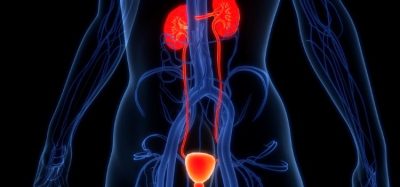Improving patient access, the UCB way
Posted: 23 November 2017 | Steve Bremer (European Pharmaceutical Review) | 1 comment
UCB’s ambition, according to its website, is to transform the lives of people living with severe diseases. The company’s Head of Global Clinical Development and Medical Affairs Stuart Dollow believes that making its clinical trial design more patient-centred and creating the right partnerships are key steps toward improving access to effective treatments for these patients..


Speaking exclusively to European Pharmaceutical Review at last week’s Pharma Integrates 2017 conference, Mr Dollow said that clinical trials must move away from the “legacy-style” systems of three phases of randomised trials, which involve transferring huge data packages into agencies for approval before discussing whether that data is fit for reimbursement purposes. “We have to move away from that staged gate, risk-loaded environment to one that is much more iterative,” says Mr Dollow.
He suggests using phase two trial data to carry out an exposure programme, instead of moving to phase three. Data accrued from this programme could be used to determine whether a treatment provided value. If not, patients could be switched to an alternative. But if it did provide value, the manufacturer has a better chance of achieving their hoped-for price, having already proved the data in real-world patients.
In oncology, there is a particular urgency to treat and evaluate patients, but the challenge is to know whether the interventions are effective. Progression-free survival can be achieved, but the aim should be overall survival, says Mr Dollow. “You need to make sure you’ve got the right kind of outcomes that are worth going for.”
Understanding what is important to patients is key to UCB’s approach to drug development, and it is incorporating this into its clinical trial design. “Traditional clinical trials measure traditional disease measures, but that doesn’t tell you anything about what’s important to patients. Engaging with patients before studies start, and incorporating measures that are relevant to them and including them in the clinical trial, establishes that you’re satisfying the patient need as well as demonstrating value above traditional measures.”
UCB’s patient-preferred clinical studies initiative includes these measures but also simplifies some measurements so that, for example, patients don’t have to return every week for blood draws. UCB is considering how to improve trials further by making them ‘virtual’, through a strategic alliance with a company called Science 37. This initiative aims to make the repeated hospital visits of traditional clinical trials a less common occurrence. Science 37 leverages a decentralised operating model using a cloud-based, patient-centric mobile platform that enables investigators to remotely connect to patients in their homes.
UCB is considering how to incorporate elements of that virtual practice into its studies. It hopes that this will improve recruitment, reduce the burden on patients and subsequent dropouts, and make trials more cost-effective.
In addition to these types of partnerships with patients and service providers, UCB is also involved in drug development partnerships, such as that with Amgen for the monoclonal antibody romosozumab for osteoporosis. The ARCH study into its effectiveness, published recently, is “one of the most positive osteoporosis studies that I’ve seen”.
UCB has a particularly strong science base, says Mr Dollow, and colleagues in the New Medicines team (UCB’s discovery research group) focus not only on patient benefit but on promising pathways. If a molecule doesn’t fit with the company’s portfolio, UCB partners it out as part of its biotech model.
UCB is looking for biomarkers to use in precision medicine, in order to understand upfront which patients are likely to respond to treatment. “We have a major investment in new pathways that are focused on unmet needs. For us, it’s about marrying the unmet need of 5-10 years’ time with understanding of the biological pathways that satisfy that.”










You are right regarding patients’ access to medicine within a trial.
For example I read about a vaccine against prostate cancer called Proscavax.
If their claims are true, the vaccine is a miracle.
It should be possible to go to phase two immediately, where the effect could be measured more exactly, so the patients can benefit from new products.
Mogens